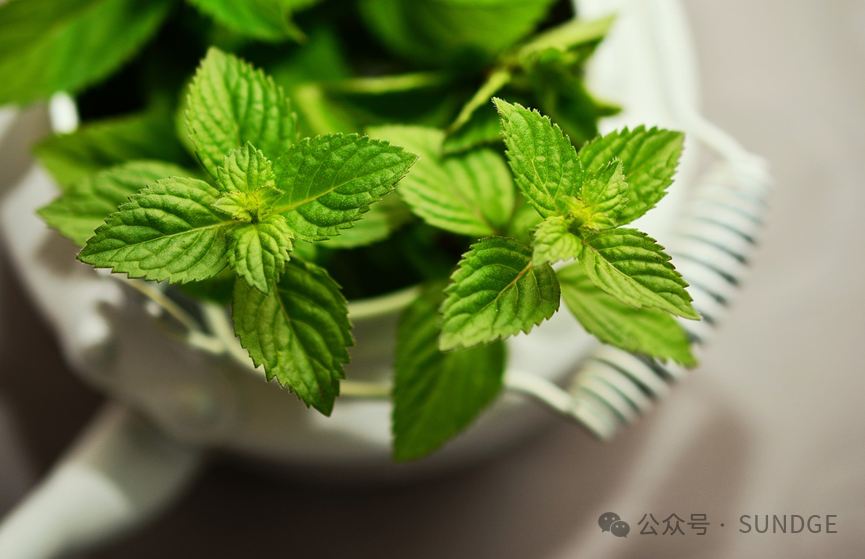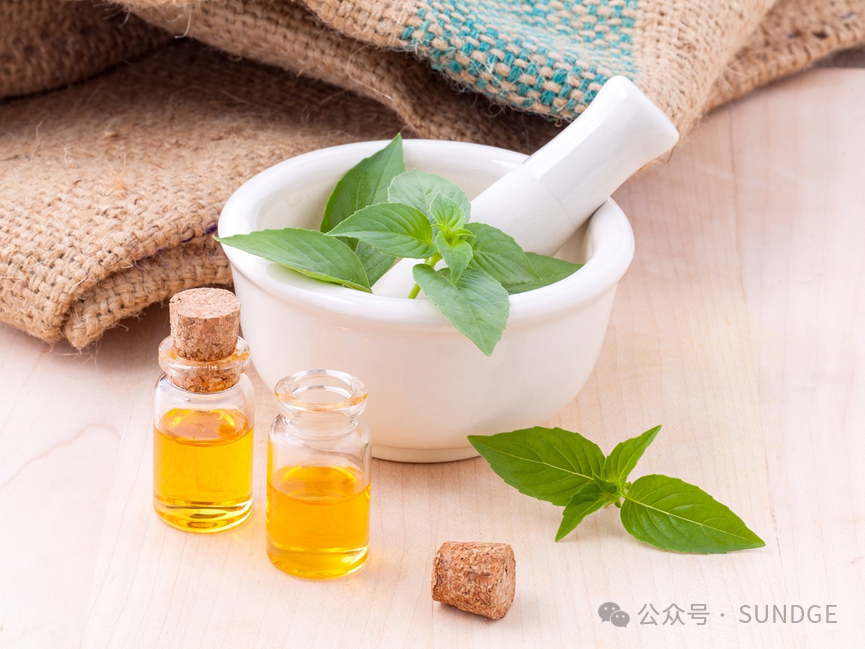Food additive - menthol
Release time:
2024-05-18
Menthol, also known as menthol, is a terpenoid organic compound that is mainly made from white crystals extracted from the leaves and stems of peppermint, and is the main component in peppermint essential oil. Menthol generally has two isomers (D type and L type), and the natural menthol is mainly the L-isomer (L-menthol). It can be used as a flavoring agent for toothpaste, perfumes, beverages and candies. It is used as an irritant in medicine, acting on the skin or mucous membranes, and has a cooling and anti-itching effect.

Physicochemical properties
The left-handed ones are colorless needle-like crystals. The melting point is 42-43 °C, the boiling point is 216 °C, the specific rotation is -51 °-45 °, the flash point is 93 °C, the relative density is 0.8810, soluble in ethanol, and miscible with oil. It has a cool, fresh, pleasant characteristic minty aroma with a sweet spike. It gives a cold sensation and the aroma is permeable, but not persistent enough. The taste is also fresh and sweet.

Efficacy application
Anti-inflammatory and analgesic: Menthol can be involved in the regulation of cold sensation, pain perception, inflammatory response, vasoconstriction and dilation, cell growth and proliferation through the TRPM8 channel (a member of the TRP family of transient receptor potential channel proteins). The pathway induces a feeling of coolness, inhibits the overexpression of inflammatory factors, and plays an anti-inflammatory and analgesic role.
Boost your spirits: Menthol can enhance the content and activity of GABA receptors (γ-aminobutyric acid), relieve anxiety, tiredness and refresh the nervous system.
Antibacterial and antiviral: menthol can damage the cell membrane of bacteria, causing it to fold and rupture, and has a good inhibitory effect on Escherichia coli and Staphylococcus aureus. At the same time, it can have a good effect against influenza virus.
Promote osmotic absorption: Menthol can increase the permeability of the skin and promote the penetration of lipophilic drugs by disrupting the lipid ordered structure of the stratum corneum and extracting some lipids from the stratum corneum.
Main uses:
Menthol has the functions of flavoring, cooling, sterilization, antiseptic, etc., and can be used in food, medicine, daily chemical and other fields; It is used in the production of beverages, candies, cigarettes, cooling and anti-itching medicines, nasopharyngeal inflammation drugs, toothpaste, perfumes, cosmetics, etc.


There are many menthol isomers, mainly the L-isomer (L-menthol), followed by the racemic isomer (DL-menthol). L-menthol has both mint aroma and cooling effect, and is the main product type in the menthol market, accounting for more than 95% of the market.
Health hazards
Menthol generally has the effects of relieving fatigue, refreshing the mind, relieving sore throat, refreshing breath, improving appetite, etc., but improper use may cause side effects such as dizziness, nausea, and vomiting. Menthol is neurotoxic, and the added concentration of general cooling sensation is not easy to ingest into toxic doses. However, menthol, an oil-soluble small molecule, has strong permeability to the skin, and when used in large areas and high doses (such as shampoos and scalp conditioners), it is easy to produce nerve toxins. For example, products such as the liniment Fengyoujing, which contains a high concentration of menthol, may cause central nervous system poisoning in infants and young children under the age of 2 who rub a large area of the entire abdomen and whole legs.
RELATED NEWS
Copyright © Nanjing Shundajie Chemical New Materials Co., Ltd. Powered by www.300.cn











